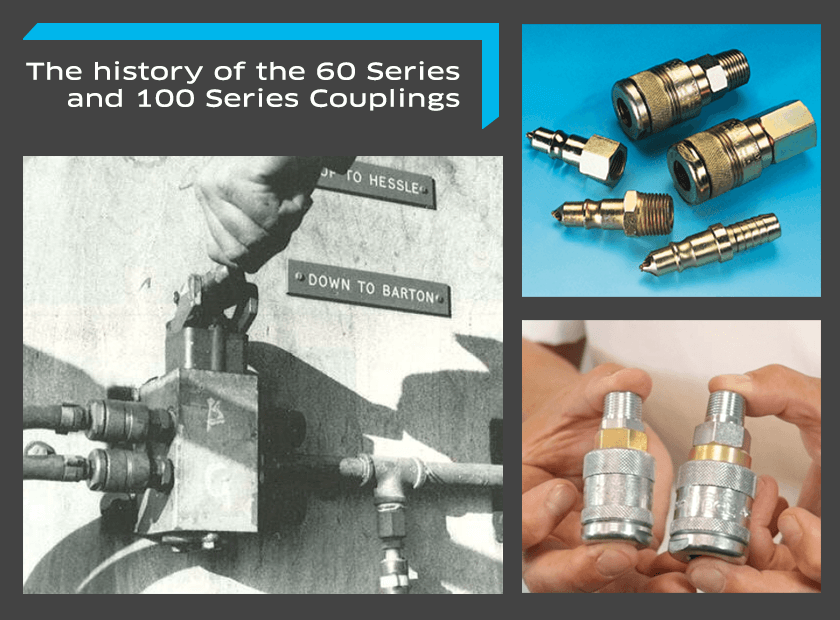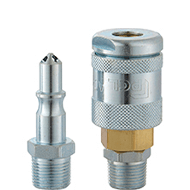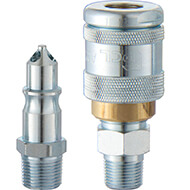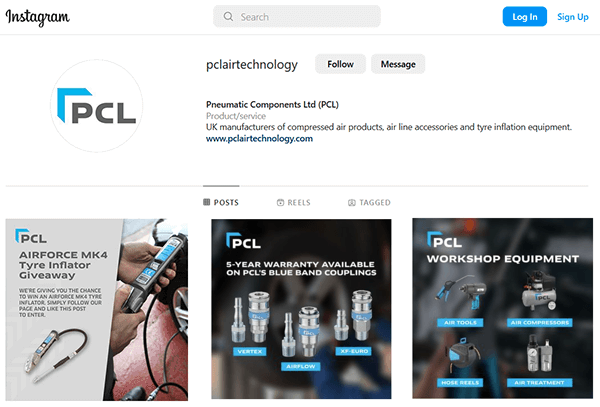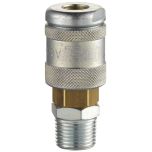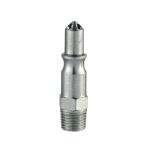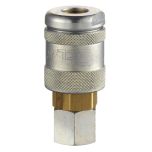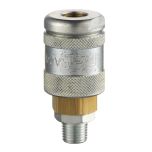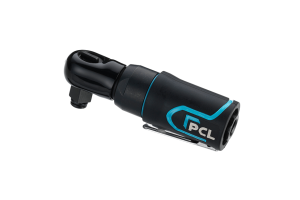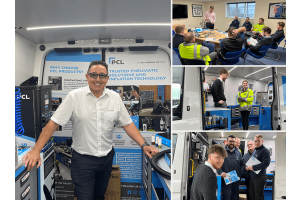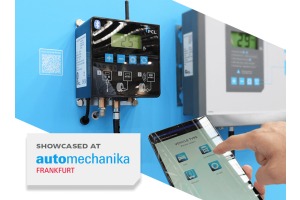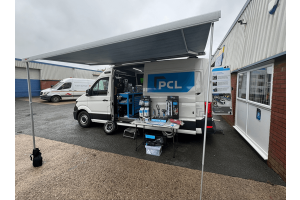60 Years of the 60 Series: The history of the 60 Series and 100 Series Couplings
On the 60th anniversary of the launch of PCL’s 60 Series Couplings and Adaptors, we take a look at the history of both the 60 and 100 Series.
When did PCL start to manufacture the 60 Series and 100 Series Couplings and Adaptors?
PCL first started to manufacture the 60 Series Coupling and Adaptors in 1963 at our Eyre Street factory in Sheffield, and by 1965 the patent was granted. The traditional "Made in Sheffield" 60 Series, had similar operating features to the Standard Series making it ideal for fixed and trailing hose applications in garage, tyre shop and industrial environments, however the 60 Series had greater airflow characteristics and a different adaptor profile.
After the successful launch of the 60 Series, in 1968, the 100 Series (previously referred to as M100) was launched, this coupling and adaptor profile featured an extra large aperture ensuring larger airflow than the 60 Series. To learn more about the difference between the 60 Series and 100 Series, read our handy guide.
Over the years, the 60 and 100 Series has had different looks due to the changes in plating. The most recent change was in 2014, when the colour of the couplings and adaptors changed from a yellow/gold to silver, this was due to the change in our electroplating process from a Hexavalent chrome to the more enviromentally-friendly Trivalent chrome.
Today, both series are manufactured in our state-of-the-art factory and proudly carry the ‘Made in Sheffield’ mark of origin and quality.
PCL's 60 Series and 100 Series over the years...
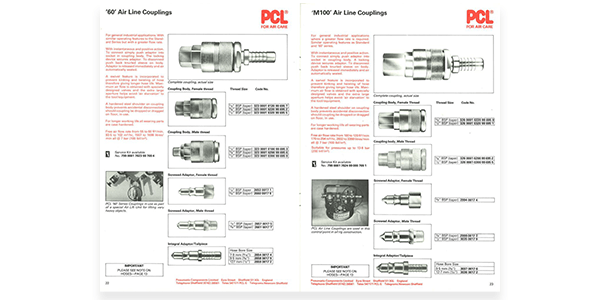
60 Series and 100 Series in PCL's 1979 Catalogue
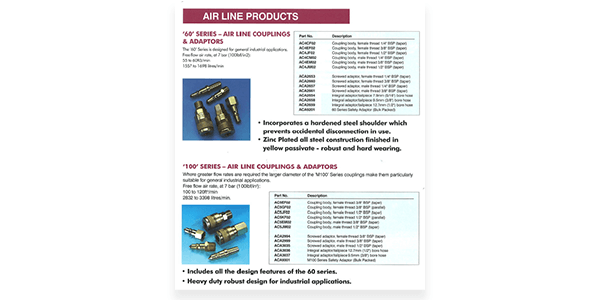
60 Series and 100 Series in PCL's 1998 Catalogue
60 Series and 100 Series today
What applications have the 60 Series and 100 Series been used in over the years?
Here's a glimpse at some of the historic applications from over the last 60 years.
PCL in the North Sea…
In the 1960s, one of PCL’s industrial distributors made the ‘Airpig’ for use during the construction of oil rig platforms for the North Sea. Based on a car wheel for exceptional stability, the Airpig was used as a portal air take-off point for pneumatic tools and incorporates a filter, lubricator, and five PCL 100 Series couplings.
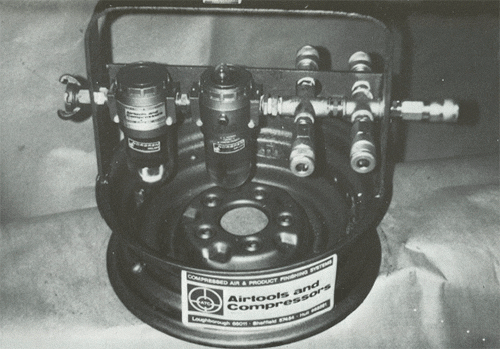
The 'Airpig' featuring PCL's 100 Series Couplings
PCL to the rescue
MFC Survival Ltd manufactured a special Air Lift Unit in the form of a large air bag, which could lift very heavy objects, and was particularly useful for accident situations where someone was trapped and conventional jacks were impractical. PCL’s 60 Series were used as part of the inflation equipment giving reliable leakproof and positive action.
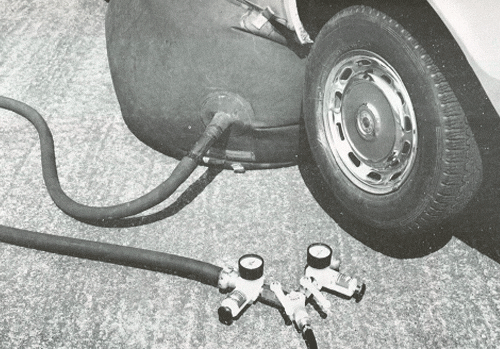
Special Air Lift Unit featuring 60 Series
PCL on the track
In 1978, five miles from Newquay in Cornwall, PCL's 100 Series Couplings were installed on the train brakes of the Lappa Valley Railway Co Ltd which ran on a 15” 375mm gauge track from Benny Halt up the Lappa Valley to the famous but now disused East Wheel Rose tin mine. It was a popular tourist ride to see the splendid ruins of the old mine.
The company used the 100 Series couplings on the braking system of the train because of their ease in operation - they provide immediate coupling and uncoupling of the train brakes, their design ensured that they were completely airtight, and they have an excellent record of reliability.
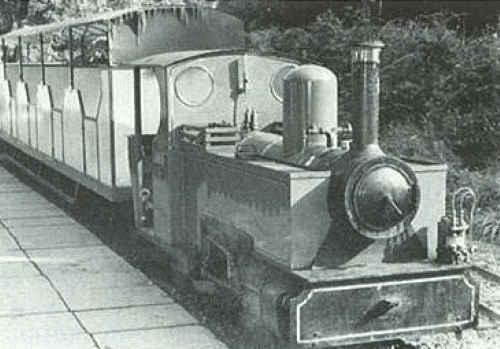
PCL's 100 couplings on the braking system of the train at Lappa Valley Railway Co Ltd
PCL’s 60 Series – The choice of Experts
In the 1970s, Wask Engineering Ltd, supplied the British Gas Board and Contractors with the ‘bagging-off’ range equipment - which was used for the isolation and by-passing of gas mains under repair - was widely recognised as the most efficient in the field. The equipment ensured a continuous consumer gas supply and minimised gas leaks into the atmosphere.
When the product was first launched, PCL’s 60 Series Couplings and Adaptors were chosen because of their quality and reliability. Wask continuously developed their equipment in search for faster and safer gas service installation. In 1982, Wask launched their latest WASK 312 Bagpipe, which had many improvements however one thing that was not changed due to their reliability was the 60 Series couplings.
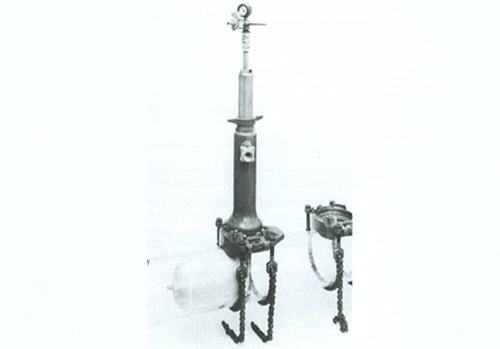
WASK 312 Bagpipe with PCL's 60 Series Couplings
PCL Couplings on the UK’s Longest Suspension Bridge
In 1982, PCL were delighted that the 60 Series Couplings were chosen to play a small but important part in the remarkable Humber Bridge which was the world longest at that time.
Maintenance of such a huge structure presents many problems, and the main carriageway had no less than four travelling maintenance cradles slung beneath it. Each cradle had a compressed air system incorporating PCL 60 Series Couplings. The cradles are moved along the underside of the bridge by motors coupled to the system by PCL 60 Series Couplings, and further 60 Series Couplings provided air take-off points for spray guns and air tools that were used by the maintenance engineers.
Weather conditions on the bridge can be very severe so it was essential that maintenance work could be done quickly and efficiently, this was one of the reason why PCL 60 Series Couplings were chosen as they give an immediate and positive connection of a tool to the air supply – the coupling body and adaptor simply push together. The coupling body also incorporates a swivel feature to prevent the hose from kinking therefore prolonging the hose life.
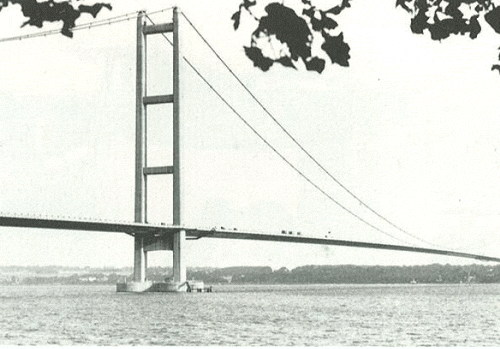
PCL's 60 Series Couplings on the Humber Bridge
PCL used by Mobile Van Fleets
Today, our 100 Series are still used by tyre shops and mobile tyre fitting van fleets as seen in the photo below, where our partners On Board Power installed the 100 Series along with an Airflow Coupling on a Lodge Tyre van.
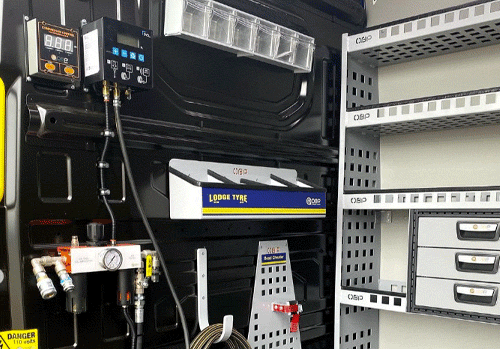
PCL's 100 Series and Airflow Series Couplings installed on a mobile tyre fitting van, along with PCL's ACCURA QUBE [Photo Credit: On Board Power]
PCL's products are used in a wide range of industries and applications. Here are some more interesting examples that might surprise you.
Have you spotted any PCL 60 Series or 100 Series Coupling and Adaptors on your travels? Or do you have own a PCL product? Old or new we’d love to see it! Tag us on Instagram @pclairtechnology.



